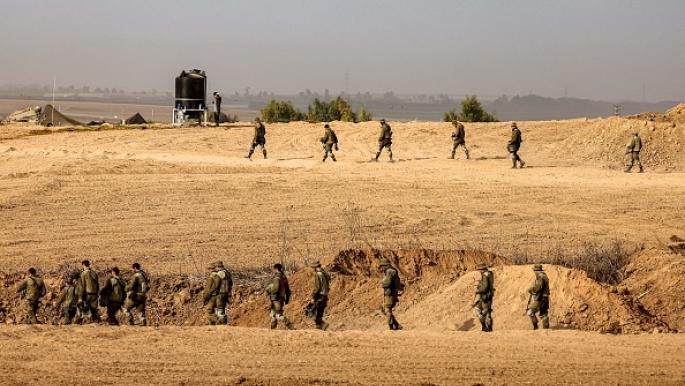الأخبار
ترامب يلغي رسميا عقوبات "قيصر" على سوريا بعد سبع سنوات من إقرارها  شبوة.. مقتل جندي برصاص مسلحين قبليين في عسيلان
شبوة.. مقتل جندي برصاص مسلحين قبليين في عسيلان  استهداف مقر إصلاح تعز.. كيف خلقت أدوات التحريض الممنهج الجريمة؟
استهداف مقر إصلاح تعز.. كيف خلقت أدوات التحريض الممنهج الجريمة؟  مصر: المساس بالدولة السودانية "خط أحمر" ويهدد الأمن القومي المصري
مصر: المساس بالدولة السودانية "خط أحمر" ويهدد الأمن القومي المصري  مسؤول أممي يعلن اختطاف مليشيات الحوثي لـ 10 من موظفي الأمم المتحدة بصنعاء
مسؤول أممي يعلن اختطاف مليشيات الحوثي لـ 10 من موظفي الأمم المتحدة بصنعاء  هل تقترب ساعة الحسم العسكري مع المجلس الانتقالي شرق اليمن؟
هل تقترب ساعة الحسم العسكري مع المجلس الانتقالي شرق اليمن؟  التكتل الوطني يدين استهداف مقر الإصلاح في تعز ويحذر من خطورة التحريض السياسي
التكتل الوطني يدين استهداف مقر الإصلاح في تعز ويحذر من خطورة التحريض السياسي 
 شبوة.. مقتل جندي برصاص مسلحين قبليين في عسيلان
شبوة.. مقتل جندي برصاص مسلحين قبليين في عسيلان  استهداف مقر إصلاح تعز.. كيف خلقت أدوات التحريض الممنهج الجريمة؟
استهداف مقر إصلاح تعز.. كيف خلقت أدوات التحريض الممنهج الجريمة؟  مصر: المساس بالدولة السودانية "خط أحمر" ويهدد الأمن القومي المصري
مصر: المساس بالدولة السودانية "خط أحمر" ويهدد الأمن القومي المصري  مسؤول أممي يعلن اختطاف مليشيات الحوثي لـ 10 من موظفي الأمم المتحدة بصنعاء
مسؤول أممي يعلن اختطاف مليشيات الحوثي لـ 10 من موظفي الأمم المتحدة بصنعاء  هل تقترب ساعة الحسم العسكري مع المجلس الانتقالي شرق اليمن؟
هل تقترب ساعة الحسم العسكري مع المجلس الانتقالي شرق اليمن؟  التكتل الوطني يدين استهداف مقر الإصلاح في تعز ويحذر من خطورة التحريض السياسي
التكتل الوطني يدين استهداف مقر الإصلاح في تعز ويحذر من خطورة التحريض السياسي 
ترامب يلغي رسميا عقوبات "قيصر" على سوريا بعد سبع سنوات من إقرارها  شبوة.. مقتل جندي برصاص مسلحين قبليين في عسيلان
شبوة.. مقتل جندي برصاص مسلحين قبليين في عسيلان  استهداف مقر إصلاح تعز.. كيف خلقت أدوات التحريض الممنهج الجريمة؟
استهداف مقر إصلاح تعز.. كيف خلقت أدوات التحريض الممنهج الجريمة؟  مصر: المساس بالدولة السودانية "خط أحمر" ويهدد الأمن القومي المصري
مصر: المساس بالدولة السودانية "خط أحمر" ويهدد الأمن القومي المصري  مسؤول أممي يعلن اختطاف مليشيات الحوثي لـ 10 من موظفي الأمم المتحدة بصنعاء
مسؤول أممي يعلن اختطاف مليشيات الحوثي لـ 10 من موظفي الأمم المتحدة بصنعاء  هل تقترب ساعة الحسم العسكري مع المجلس الانتقالي شرق اليمن؟
هل تقترب ساعة الحسم العسكري مع المجلس الانتقالي شرق اليمن؟  التكتل الوطني يدين استهداف مقر الإصلاح في تعز ويحذر من خطورة التحريض السياسي
التكتل الوطني يدين استهداف مقر الإصلاح في تعز ويحذر من خطورة التحريض السياسي 
 شبوة.. مقتل جندي برصاص مسلحين قبليين في عسيلان
شبوة.. مقتل جندي برصاص مسلحين قبليين في عسيلان  استهداف مقر إصلاح تعز.. كيف خلقت أدوات التحريض الممنهج الجريمة؟
استهداف مقر إصلاح تعز.. كيف خلقت أدوات التحريض الممنهج الجريمة؟  مصر: المساس بالدولة السودانية "خط أحمر" ويهدد الأمن القومي المصري
مصر: المساس بالدولة السودانية "خط أحمر" ويهدد الأمن القومي المصري  مسؤول أممي يعلن اختطاف مليشيات الحوثي لـ 10 من موظفي الأمم المتحدة بصنعاء
مسؤول أممي يعلن اختطاف مليشيات الحوثي لـ 10 من موظفي الأمم المتحدة بصنعاء  هل تقترب ساعة الحسم العسكري مع المجلس الانتقالي شرق اليمن؟
هل تقترب ساعة الحسم العسكري مع المجلس الانتقالي شرق اليمن؟  التكتل الوطني يدين استهداف مقر الإصلاح في تعز ويحذر من خطورة التحريض السياسي
التكتل الوطني يدين استهداف مقر الإصلاح في تعز ويحذر من خطورة التحريض السياسي 
